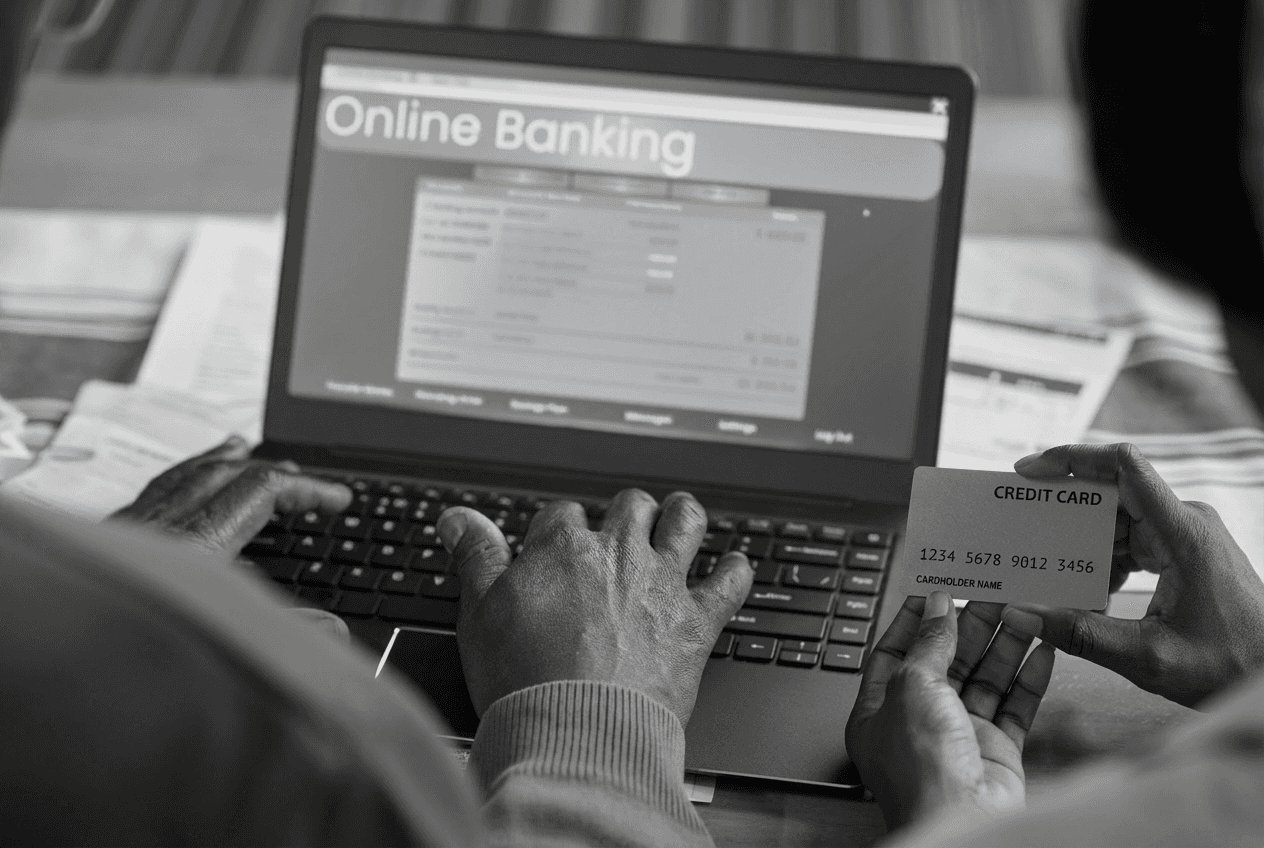September 18, 2025
September 18, 2025
September 18, 2025
Why Nigeria Is Becoming a Top Target for Cyberattacks in 2025.
Nigeria’s digital growth has outpaced its security, making the nation a hotspot for hackers. In 2025, breaches and scams are rising fast- but the biggest threat is our complacency. This story exposes why Nigeria is being targeted and how smarter awareness, stronger systems, and personal vigilance can protect our digital future.
Nigeria’s digital growth has outpaced its security, making the nation a hotspot for hackers. In 2025, breaches and scams are rising fast- but the biggest threat is our complacency. This story exposes why Nigeria is being targeted and how smarter awareness, stronger systems, and personal vigilance can protect our digital future.
Nigeria is facing a sharp surge in cyberattacks in 2025; from data breaches to banking scams. Here’s why the country has become a prime target for hackers and what Nigerians can do to stay safe.
The New Reality of Cyber Threats in Nigeria
You wake up to a debit alert from a bank you’ve never used. Or your social media accounts suddenly start promoting crypto schemes you’ve never heard of. Welcome to the reality of digital life in Nigeria in 2025.
Over the last year, Nigeria has quietly climbed into the top 15 most targeted countries in the world for cyberattacks, according to TechPoint Africa. Between January and June 2025, security tools in Nigeria blocked more than 1.46 million attack attempts, reports Tech Africa News.
And the breaches aren’t just numbers: banks, telcos, and even the Nigeria Customs Service have been hit.
Why Hackers Are Flocking to Nigeria
The country has become a digital goldmine- fast growth, weak defenses, and millions of new online users every month. Here’s why criminals love us so much:
Rapid Digital Adoption, Weak Infrastructure:
Fintech and mobile banking exploded, but most systems still lack layered security. Millions of small businesses operate on unsecured platforms.
Regulatory Gaps and Slow Enforcement:
Nigeria’s Cybercrime Act was revised in 2025 to demand 72-hour breach reporting, but enforcement remains patchy. (USC Nigeria)
Low Cyber Awareness:
A KnowBe4 Africa report shows over half of Nigerian users can’t correctly identify ransomware or phishing threats.
Insider Threats and Corruption:
Cybersecurity breaches often start inside the organization. Nigerian banks lost an estimated ₦19 billion to insider fraud in 2024, according to LSE Africa.
Rise of AI-Powered and Crypto Scams:
With the growth of crypto adoption, cybercriminals are exploiting digital wallets and AI-generated fake IDs, says CSEAN’s 2025 report.
The Human Cost of Digital Crime
Cyberattacks aren’t just about lost data; they’re about lost trust.
Individuals lose money, identity, or both.
Small businesses collapse after a single ransomware hit.
Corporations suffer reputational ruin.
Government agencies face operational paralysis, as seen with the Customs Service outage.
When digital trust breaks down, every online interaction; from banking to dating; becomes a potential threat.
How Nigerians Can Protect Themselves
For Individuals:
Use strong, unique passwords- not your child’s birthday.
Turn on Two-Factor Authentication (2FA) for all critical accounts.
Avoid clicking links in unsolicited messages.
Update your phone and computer regularly.
Use a VPN when connected to public Wi-Fi.
Never share your OTPs, even with “bank officials.”
For Businesses:
Run a cybersecurity audit at least twice a year.
Backup your data both offline and in the cloud.
Train your staff- human error remains the weakest link.
Limit admin privileges and enforce access control.
Have an incident response plan- don’t figure it out mid-crisis.
For Government & Large Institutions:
Invest in local cyber talent and awareness campaigns.
Build a public-private threat-intelligence network.
Enforce security standards across telecoms, banks, and e-commerce platforms.
Partner globally- cybercrime is borderless.
The Silver Lining: Nigeria Is Waking Up
NITDA and ngCERT have started enforcing tighter cybersecurity compliance. The telecom sector’s new cybersecurity framework is in the works for 2026 (Ecofin Agency).
Nigeria also signed a landmark MoU with Kaspersky to boost national cyber defenses (Ecofin Agency). Execution is the hard part- but at least, this time, we’re not pretending the threat doesn’t exist.
Final Word
Cybercrime isn’t a tech issue anymore; it’s a national survival issue. Every Nigerian- from student to CEO- needs to practice basic digital hygiene and demand accountability from institutions that hold their data.
The question isn’t if you’ll be targeted. It’s when.
If you’re a business owner, policymaker, or just a citizen trying to stay safe online, it’s time to verify everything and everyone.
Because in the digital world, trust isn’t automatic- it’s earned.
Nigeria is facing a sharp surge in cyberattacks in 2025; from data breaches to banking scams. Here’s why the country has become a prime target for hackers and what Nigerians can do to stay safe.
The New Reality of Cyber Threats in Nigeria
You wake up to a debit alert from a bank you’ve never used. Or your social media accounts suddenly start promoting crypto schemes you’ve never heard of. Welcome to the reality of digital life in Nigeria in 2025.
Over the last year, Nigeria has quietly climbed into the top 15 most targeted countries in the world for cyberattacks, according to TechPoint Africa. Between January and June 2025, security tools in Nigeria blocked more than 1.46 million attack attempts, reports Tech Africa News.
And the breaches aren’t just numbers: banks, telcos, and even the Nigeria Customs Service have been hit.
Why Hackers Are Flocking to Nigeria
The country has become a digital goldmine- fast growth, weak defenses, and millions of new online users every month. Here’s why criminals love us so much:
Rapid Digital Adoption, Weak Infrastructure:
Fintech and mobile banking exploded, but most systems still lack layered security. Millions of small businesses operate on unsecured platforms.
Regulatory Gaps and Slow Enforcement:
Nigeria’s Cybercrime Act was revised in 2025 to demand 72-hour breach reporting, but enforcement remains patchy. (USC Nigeria)
Low Cyber Awareness:
A KnowBe4 Africa report shows over half of Nigerian users can’t correctly identify ransomware or phishing threats.
Insider Threats and Corruption:
Cybersecurity breaches often start inside the organization. Nigerian banks lost an estimated ₦19 billion to insider fraud in 2024, according to LSE Africa.
Rise of AI-Powered and Crypto Scams:
With the growth of crypto adoption, cybercriminals are exploiting digital wallets and AI-generated fake IDs, says CSEAN’s 2025 report.
The Human Cost of Digital Crime
Cyberattacks aren’t just about lost data; they’re about lost trust.
Individuals lose money, identity, or both.
Small businesses collapse after a single ransomware hit.
Corporations suffer reputational ruin.
Government agencies face operational paralysis, as seen with the Customs Service outage.
When digital trust breaks down, every online interaction; from banking to dating; becomes a potential threat.
How Nigerians Can Protect Themselves
For Individuals:
Use strong, unique passwords- not your child’s birthday.
Turn on Two-Factor Authentication (2FA) for all critical accounts.
Avoid clicking links in unsolicited messages.
Update your phone and computer regularly.
Use a VPN when connected to public Wi-Fi.
Never share your OTPs, even with “bank officials.”
For Businesses:
Run a cybersecurity audit at least twice a year.
Backup your data both offline and in the cloud.
Train your staff- human error remains the weakest link.
Limit admin privileges and enforce access control.
Have an incident response plan- don’t figure it out mid-crisis.
For Government & Large Institutions:
Invest in local cyber talent and awareness campaigns.
Build a public-private threat-intelligence network.
Enforce security standards across telecoms, banks, and e-commerce platforms.
Partner globally- cybercrime is borderless.
The Silver Lining: Nigeria Is Waking Up
NITDA and ngCERT have started enforcing tighter cybersecurity compliance. The telecom sector’s new cybersecurity framework is in the works for 2026 (Ecofin Agency).
Nigeria also signed a landmark MoU with Kaspersky to boost national cyber defenses (Ecofin Agency). Execution is the hard part- but at least, this time, we’re not pretending the threat doesn’t exist.
Final Word
Cybercrime isn’t a tech issue anymore; it’s a national survival issue. Every Nigerian- from student to CEO- needs to practice basic digital hygiene and demand accountability from institutions that hold their data.
The question isn’t if you’ll be targeted. It’s when.
If you’re a business owner, policymaker, or just a citizen trying to stay safe online, it’s time to verify everything and everyone.











